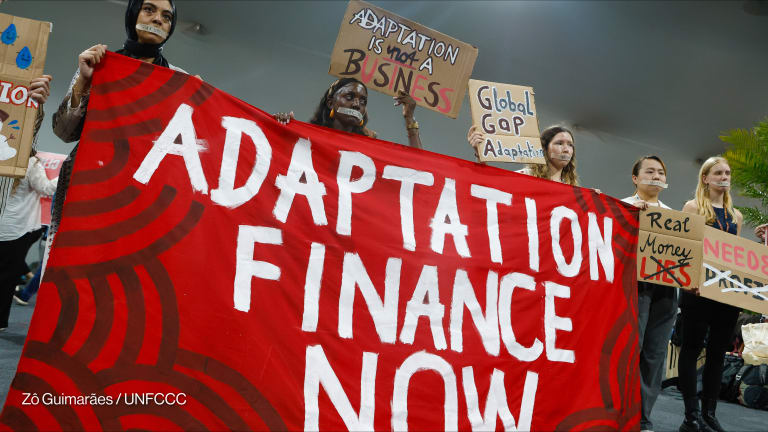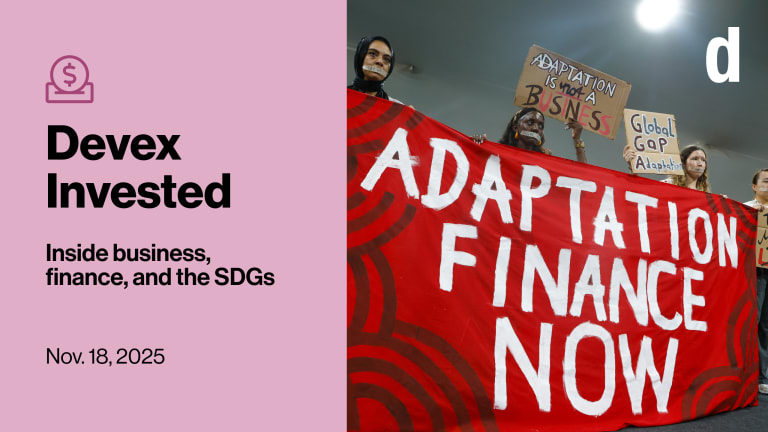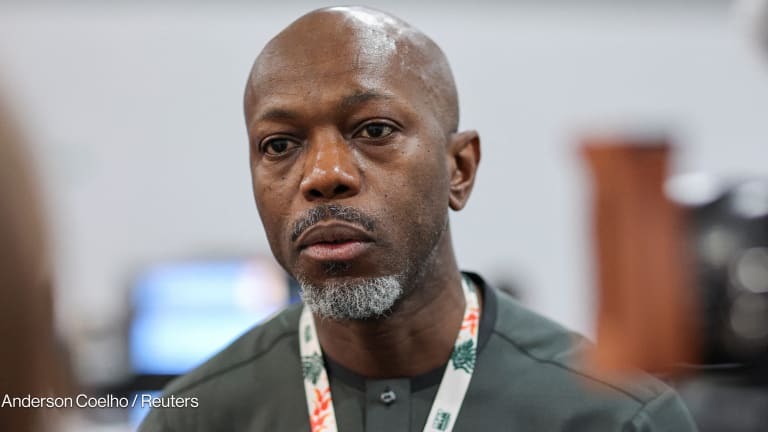New fund aims to unlock private investment for adaptation, agriculture
There are huge gaps in climate finance needs and reality, especially for adaptation. The private sector is key to bridging that gap and a new fund from responsAbility could help prove the business case for climate adaptation and agriculture investments.
One of the key challenges in adaptation finance has been getting private capital to invest in projects that they often see as too small or too risky. With adaptation funds making up a fraction of climate finance totals, determining how to identify and invest in projects that help companies or industries adjust to current or expected effects of climate change is critical. ResponsAbility, a Swiss impact investing firm, recently launched the Climate Smart Agriculture & Food Systems Fund, which should raise $60 million by the end of the year. The fund aims to provide commercial returns and help prove that there are investments, and profits, to be made in adaptation. “The idea of creating a fund at the intersection of agriculture and climate was here for a while, and we simply needed to figure out how can we make this happen in terms of an investment and impact strategy,” Stephanie Bilo, the chief client and investment solutions officer at responsAbility, told Devex. While the fund was years in the making, it is coming together at a critical time, she added. At least $4.3 trillion in annual financial flows are needed by 2030 to avoid the worst impacts of climate, but initial estimates showed there was only between $850 billion and $940 billion in 2021, according to the Climate Policy Initiative. While private sector investment is increasing, it is not scaling at the speed needed for the climate transition and is growing more slowly than public sector financing, CPI found. The framework for the fund was created in partnership with CGIAR, a global food security research partnership, and companies that receive investments will also be able to get technical assistance grants to support research or other consulting work they may need. The fund uses blended finance, which means it has some public money that is used to de-risk investments and attract private capital. In this case, KfW, the German development bank, will provide equity as the first-loss layer and the U.S. International Development Finance Corporation will provide a second loss guarantee. This is the first time DFC is providing this type of guarantee where if loans are impacted beyond what KfW’s first loss will cover, it will cover the losses. Typically, DFC will provide a guarantee where it will split losses evenly between itself and investors. The initial fund close, which Bilo said she hopes will happen by the end of the year, will be about $60 million, and the fund is targeting commercial returns. "We have quite a lot of interest from impact investing investors in this particular fund, because it's a bit different than what you normally see on climate mitigation," she said, adding that the fund is targeting specific climate key performance indicators including on carbon dioxide emission reductions, water usage reduction, and food loss reduction. It will also have a focus on gender equality across the value chain. While the negotiations and paperwork are being completed, responsAbility is already at work building a pipeline of investments for the fund, and it expects to begin deploying the capital as soon as all the legal commitments are in place, which is the first financial close. The fund may invest in agricultural producers, logistics in agricultural supply chains, or food producers. It will focus on Latin America and Asia, with a smaller proportion of investments — between 10%-20% — in Africa. It's challenging to fund this type of adaptation work because of the small scale of most of the companies trying to adapt, she said. "There are only a few growth companies in this area that are investable. And, the agricultural sector itself is highly fragmented,” she said. “Therefore it is not obvious to identify good companies in this area, specifically companies that actually have an influence and are pioneering the sector." That’s why this fund had to take a bespoke approach and has had to carefully put the de-risking mechanisms in place. It is critical to have simple and clear structures in blended finance approaches, she said. "This one is a highly innovative structure and it's also very complex. We admit that. But it's fine. It needs to be. We are also working on some other strategies which we are trying to structure in a much easier way," she said. The public sector is pushing for more investment in climate adaptation, and what’s needed now are the right fund structures, she said. While interest in agricultural value chains, especially when related to climate, is booming, it is difficult to scale. Bilo said she hopes that this fund will be the first of many “because there needs to be so much investment,” she said.
One of the key challenges in adaptation finance has been getting private capital to invest in projects that they often see as too small or too risky.
With adaptation funds making up a fraction of climate finance totals, determining how to identify and invest in projects that help companies or industries adjust to current or expected effects of climate change is critical.
ResponsAbility, a Swiss impact investing firm, recently launched the Climate Smart Agriculture & Food Systems Fund, which should raise $60 million by the end of the year. The fund aims to provide commercial returns and help prove that there are investments, and profits, to be made in adaptation.
This story is forDevex Promembers
Unlock this story now with a 15-day free trial of Devex Pro.
With a Devex Pro subscription you'll get access to deeper analysis and exclusive insights from our reporters and analysts.
Start my free trialRequest a group subscription Printing articles to share with others is a breach of our terms and conditions and copyright policy. Please use the sharing options on the left side of the article. Devex Pro members may share up to 10 articles per month using the Pro share tool ( ).
Adva Saldinger is a Senior Reporter at Devex where she covers development finance, as well as U.S. foreign aid policy. Adva explores the role the private sector and private capital play in development and authors the weekly Devex Invested newsletter bringing the latest news on the role of business and finance in addressing global challenges. A journalist with more than 10 years of experience, she has worked at several newspapers in the U.S. and lived in both Ghana and South Africa.








